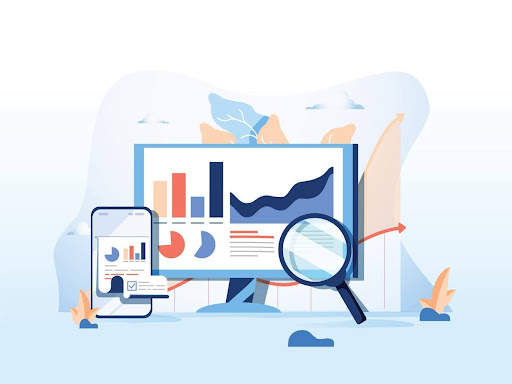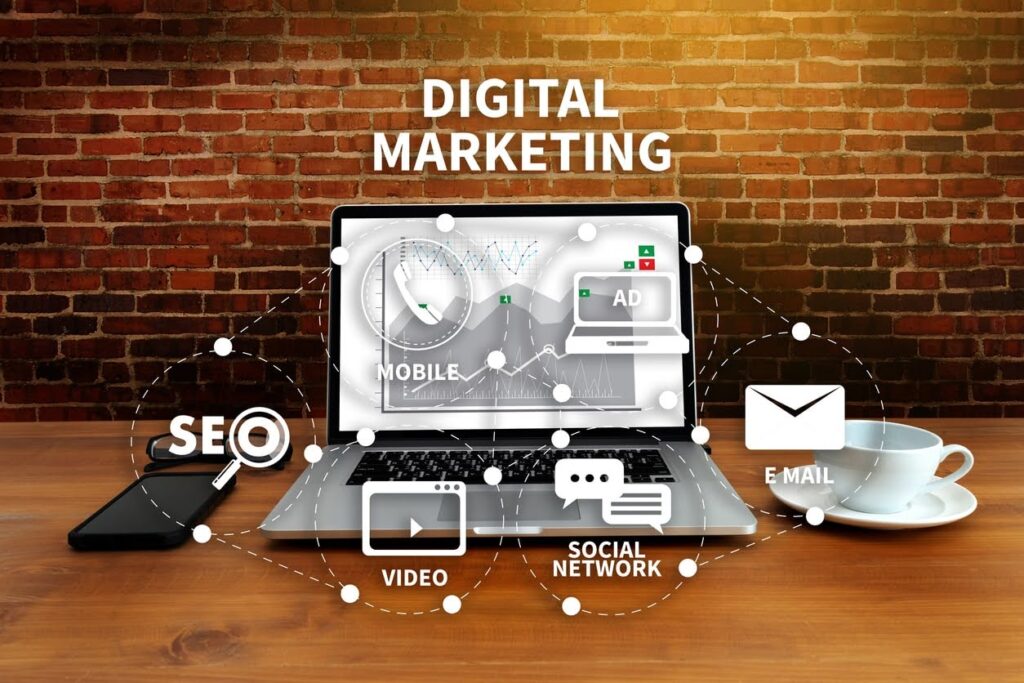New Google Ads Brand Report
Google has quietly introduced a powerful tool for advertisers: the
Read More
In the rapidly evolving landscape of digital marketing, harnessing Artificial Intelligence (AI) for Search Engine Optimization (SEO) has become not just beneficial, but essential. AI empowers marketers with advanced tools and analytics to elevate their SEO strategies, ensuring better visibility and engagement in an increasingly competitive online environment.
As the digital landscape becomes more competitive, leveraging AI in SEO is not merely an advantage but a necessity for staying ahead in today’s rapidly evolving online market. AI offers tools to decode complex user data, predict trends, and personalize marketing strategies, enabling smaller entities to compete on a level playing field with industry giants.
This blog post will explore how AI is reshaping SEO, why embracing it could be a game-changer for your business, services, and consultancy, and provide insights into implementing these advancements effectively. By adopting AI-driven SEO, businesses can enhance their online presence, attract more targeted traffic, and ultimately achieve greater success in the digital marketplace.
To truly leverage the benefits of AI in SEO, it’s essential to understand how artificial intelligence tools work to enhance your website’s visibility in search results. AI applications in SEO are diverse and powerful, offering a range of benefits that can revolutionize your marketing approach. By analyzing vast amounts of data, AI tools provide deep SEO insights that would be impossible to gather manually. These insights help you understand what content resonates with your audience and how to optimize it for better visibility.
Additionally, AI can automate the process of content creation, generating SEO-friendly text that captures the interest of both search algorithms and human readers. Understanding how search algorithms work is crucial for effective SEO, and AI can assist by learning and adapting to the ever-changing rules of search engine algorithms, ensuring your content remains at the top of search results.
Furthermore, AI’s ability to predict trends and consumer behavior based on data analysis allows SEO strategies to be proactive rather than reactive. By identifying emerging keywords and topics early, AI empowers marketers to stay ahead in competitive search landscapes. Moreover, AI-driven insights can enhance user experience (UX) by optimizing website structure and content layout, ensuring seamless navigation and engagement. This comprehensive approach to SEO, powered by AI, can significantly improve your website’s performance and visibility in search engines.

AI has revolutionized SEO practices by offering unprecedented insights into user behavior, enabling personalized content creation, and automating complex processes such as technical audits and predictive analytics. This transformation has empowered businesses to understand their target audiences better, tailoring their marketing strategies with precision.
Moreover, AI-driven SEO tools continually refine keyword research, helping businesses stay ahead in competitive landscapes. Additionally, AI algorithms now swiftly analyze vast amounts of data, providing real-time insights that inform agile decision-making. Furthermore, AI enhances content relevance by predicting trends and user preferences, ensuring that every piece of content resonates deeply with its intended audience.

Using AI for SEO success involves leveraging advanced tools like natural language processing (NLP) for keyword research and content optimization. AI-driven algorithms can analyze search trends, predict user intent, and recommend relevant keywords, enhancing the precision of SEO strategies. Content generation AI can produce original, SEO-friendly articles based on identified topics, ensuring that the content is both relevant and engaging.
Moreover, AI tools assist in on-page SEO by optimizing meta tags, headers, and image alt texts, ensuring that every aspect of a webpage is tuned for better search engine performance. AI-powered analytics provide deep insights into website performance, user behavior, and competitor strategies, enabling marketers to develop informed SEO strategies and continuously improve them.
Integrating AI into SEO processes significantly enhances efficiency and effectiveness, leading to higher search engine rankings. This is excellent news for marketers, as AI can help them execute SEO tasks better, faster, and at scale.
Here are the 5 Examples of how AI can support and enhance your SEO efforts:
(A). AI-Powered Keyword Tools
Leading AI tools like Google’s RankBrain, SEMrush, and Ahrefs leverage advanced machine learning algorithms to enhance keyword research. These sophisticated tools analyze search patterns, uncover semantic relationships, and predict the effectiveness of keywords, enabling businesses to optimize their content for better search engine rankings.
(B). Benefits
AI-driven keyword research enhances accuracy by identifying long-tail keywords and predicting search intent, thereby optimizing content for higher rankings and improved relevance.
(C). Practical Application
A recent study by SEMrush demonstrated that businesses implementing AI-driven keyword strategies saw a significant 30% increase in organic traffic within just six months. This highlights the growing importance of leveraging advanced technology to enhance search engine optimization efforts.
(A). AI Content Generation Tools
In the realm of digital marketing, tools such as GPT-4, Jasper, and Copy.ai are revolutionizing content creation through advanced natural language processing (NLP) capabilities. These sophisticated tools can generate high-quality content across various formats, including blog posts, product descriptions, and social media updates. By leveraging NLP, they can craft content that is not only engaging and relevant but also strategically aligned with specific SEO objectives, enhancing visibility and driving traffic to websites.
(B). Benefits
Automated content creation ensures consistency, relevance, and scalability, freeing up resources for strategic tasks like audience engagement and conversion optimization.
(C). Practical Application
Many businesses have successfully utilized AI-generated content to consistently provide fresh blog updates and product descriptions. This approach has led to improved search rankings and increased user engagement metrics. By leveraging AI, companies can efficiently maintain relevant and up-to-date content, enhancing their online presence and attracting more visitors.
(A). AI for Site Audits

Tools such as Screaming Frog and DeepCrawl play a crucial role in conducting thorough site audits. These audits are essential for identifying and rectifying technical SEO issues that could impact a website’s performance and visibility in search engine results.
Screaming Frog and DeepCrawl specialize in scanning websites to uncover a range of technical issues. Common problems they detect include broken links, duplicate content across pages, and discrepancies in page load speeds. By pinpointing these issues early on, webmasters and SEO professionals can take proactive measures to optimize their sites for better search engine rankings and user experience.
These tools provide detailed reports and actionable insights, allowing website owners to prioritize and address issues systematically. Ultimately, leveraging Screaming Frog and DeepCrawl empowers businesses to maintain a well-optimized and competitive online presence.
(B). Benefits
Automated audits enable quicker detection and resolution of technical issues, ensuring that websites maintain optimal performance and adhere to search engine guidelines.
(C). Practical Application
Case studies of websites using AI for audits have demonstrated significant improvements in site health scores, leading to enhanced crawlability and indexability by search engines.
(A). AI-Driven UX Improvements
AI leverages advanced algorithms to analyze user behavior, preferences, and historical data, enabling the delivery of personalized experiences across digital platforms. This encompasses dynamic content recommendations, tailored product suggestions, and customized interfaces. By harnessing these capabilities, businesses can optimize user engagement and satisfaction, ultimately enhancing overall customer experience and driving improved conversion rates.
(B). Benefits
Personalized UX enhances user engagement, reduces bounce rates, and increases conversion rates by delivering relevant content and intuitive navigation paths.
(C). Practical Application
E-commerce platforms using AI-driven personalization have reported up to 25% increases in conversion rates, highlighting the impact of tailored experiences on SEO performance metrics.
(A). AI for Predictive Analytics
Tools such as Clearscope and MarketMuse leverage artificial intelligence to anticipate SEO trends, pinpoint emerging keywords, and forecast the performance of content by analyzing historical data and market dynamics. These AI-driven platforms enable writers and marketers to strategically optimize their content, ensuring it aligns with current search engine algorithms and user search behaviors. By harnessing advanced algorithms, Clearscope and MarketMuse empower users to enhance the relevance and visibility of their content, ultimately driving improved search engine rankings and organic traffic.
(B). Benefits
Predictive analytics empower marketers with actionable insights for proactive SEO strategies, enabling timely adjustments and data-driven decision-making.
(C). Practical Application
Businesses leveraging predictive analytics have achieved competitive advantages by preemptively optimizing content and adapting strategies to capitalize on emerging SEO trends.
Looking ahead, it is clear that artificial intelligence (AI) will play an increasingly pivotal role in shaping the future of SEO, fundamentally transforming how websites are optimized to achieve higher search engine rankings. The incorporation of AI into SEO strategies is becoming indispensable, leveraging AI-driven analytics to enhance user engagement and secure prominent placements on search engine results pages (SERPs).
The digital marketing landscape is rapidly changing, and AI will be at the heart of this shift.
A. Enhanced Personalization and User Experience: AI will revolutionize SEO by tailoring search results and website experiences based on individual user behavior and preferences. Machine learning algorithms will analyze vast amounts of data to predict user intent more accurately, leading to personalized search results and content recommendations.

The future of AI in SEO heralds a transformative shift towards more personalized, predictive, and efficient strategies. By leveraging AI-driven technologies, businesses can enhance their online presence, boost user engagement, and attain sustainable growth in the competitive digital landscape.
Businesses that embrace AI-driven SEO strategies today will position themselves for future success, staying ahead of competitors and leveraging technology to achieve measurable results.
AI is not just a tool but a transformative force reshaping the future of SEO. By harnessing its power, businesses can unlock new growth opportunities, strengthen their online presence, and achieve long-term success in the digital age.

In the ever-evolving field of digital marketing, AI is no longer just an enhancement—it’s a crucial tool for revolutionizing SEO strategies for the future. By leveraging AI-driven insights and automation, businesses can navigate the complexities of online competition with greater agility and precision. AI excels at analyzing vast data sets to refine keyword strategies, optimize content creation, and predict emerging trends, ensuring that SEO efforts are proactive rather than reactive.
This transformative technology also enhances user experiences by delivering personalized content and implementing seamless technical optimizations, which in turn boosts engagement and conversion rates. Attorney Marketing Network integrates AI-driven SEO strategies to provide sustainable growth and a competitive edge.
Embracing AI-driven SEO strategies today isn’t just about staying current; it’s about future-proofing your digital presence and unlocking new possibilities for business success in the dynamic digital landscape. Contact us today to discover how AI can revolutionize your SEO efforts.